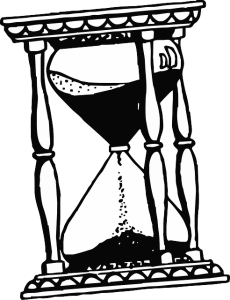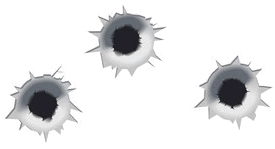 Here’s a handy tip that can yield big savings:
Here’s a handy tip that can yield big savings:
Use abbreviations. For example, when I operated Network Answering Service in San Francisco, we quickly learned to develop standard abbreviations for common things people say. For example, OOT for “out of town”, or WCB for “will call back”.
Other handy abbreviations include PLSC for “please call”, NA for “not applicable”, DBA for “doing business as”, DA for “doesn’t answer”, and OCS for “onward christian soldiers”.
But why limit this to written notes? For example, suppose you want to thank somebody for something, but it’s just a little thing. You want to thank them a little but not a lot. To communicate this precisely, and to save time at the same time, just abbreviate “Thank you” or “Thanks”.
Say: “Thank.”
See, that’s less than “Thanks.”
But wait, there’s more!
You can abbreviate more complex ideas, as well. For example, perhaps you were thinking just now that these are the moments of your life, and this is how you are spending them. Well, in this case, you could save some thinking time by using an abbreviation of “moments”.
For example, you could say “momo”. That would be like one little moment. Or the plural form “momos”, as in “These are the momos of our lives.”
Often the practice of abbreviation yields surprising insights. For example, thinking about how these are the momos of our lives, you might just naturally think about death. And then of course there would be “no more” momos, and you could abbreviate the “no more” as “nomo”.
So you can see, you could speak, or think, very succinctly. You could think about the momos of our lives, and how, when we die, we got nomo momos nomo.
You see how that can save you time?
Now if you just save a few seconds every couple of hours, then you’ll accumulate several minutes every single week. By the end of the year you’ll have an extra thirty or forty minutes. Over a lifetime you might have hours, or even days, saved up!
And that ain’t bad.



